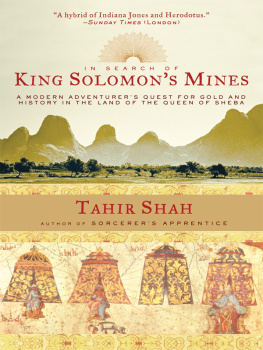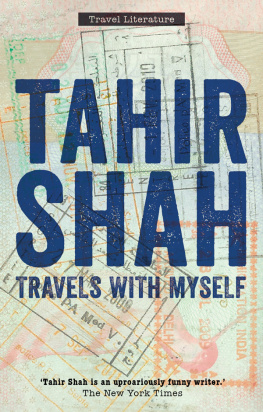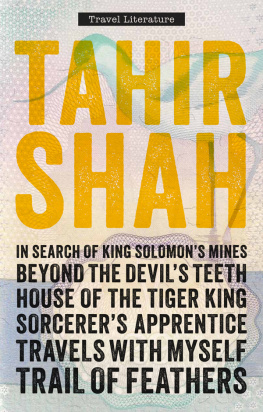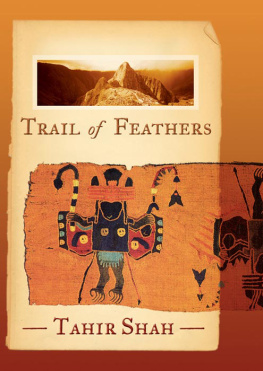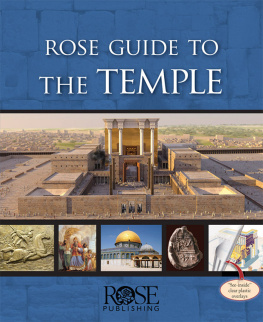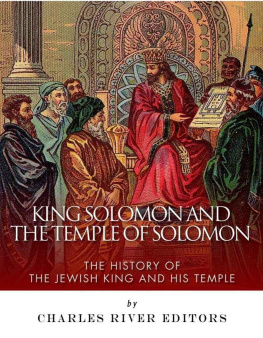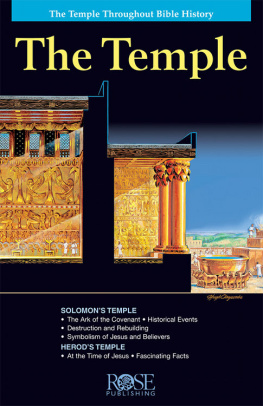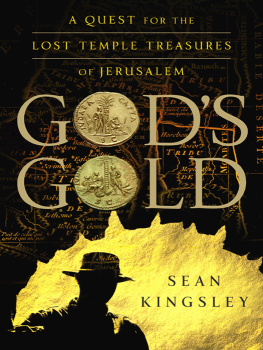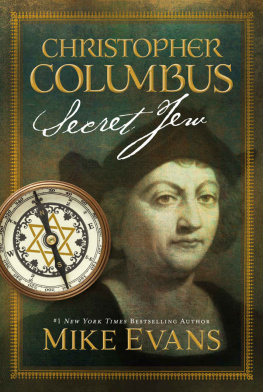By the same author
Sorcerers Apprentice Trail of Feathers: In Search of the Birdmen of Peru
Copyright 2002, 2012 by Tahir Shah
All Rights Reserved. No part of this book may be reproduced in any manner without the express written consent of the publisher, except in the case of brief excerpts in critical reviews or articles. All inquiries should be addressed to Arcade Publishing, 307 West 36th Street, 11th Floor, New York, NY 10018.
First published in Great Britain in 2002 by John Murray (Publishers) Ltd.
Arcade Publishing books may be purchased in bulk at special discounts for sales promotion, corporate gifts, fund-raising, or educational purposes. Special editions can also be created to specifications. For details, contact the Special Sales Department, Arcade Publishing, 307 West 36th Street, 11th Floor, New York, NY 10018 or .
Arcade Publishing is a registered trademark of Skyhorse Publishing, Inc., a Delaware corporation.
Visit our website at www.arcadepub.com.
10 9 8 7 6 5 4 3 2 1
Library of Congress Cataloging-in-Publication Data is available on file.
ISBN: 978-1-61145-424-6
eISBN: 978-1-62872-498-1
Printed in the United States of America
Contents
Acknowledgements
E THIOPIA IS ENCIRCLED by mountains and shrouded in misinformation. In the West, our impressions of this African country have been moulded by what we have seen on television: enduring images of drought, famine and starvation. But there is far more to Ethiopia than that, and I hope that this book helps lift the veil on a land which has captivated travellers and scholars for centuries.
In acknowledging the enormous amount of guidance and support that I received during my search for King Solomons mines, I must first thank the Ethiopian people. In few countries have I been welcomed with such extraordinary warmth and hospitality, whether in the capital Addis Ababa or in the remotest villages.
So many people in Ethiopia have helped me that it is impossible to list them all. I would, however, particularly like to thank Getachew Tessfai and his team at the Ministry of Mines, the experts at the Geological Survey of Ethiopia, and the staff of the British Embassy in Addis Ababa. Sincere thanks must also go to Dr. Araga Yirdaw, Petrus Visagie, Wayne Nicoleta and their colleagues at Midroc Lega Dembi; and to Yasmin Mohammed and her family. In addition, I am indebted to the many Ethiopians who are mentioned by name in the text. Most of all, I would like to thank Samson Yohannes, who stayed by my side even during times of considerable hardship.
Many others elsewhere have endured my petitions for information, advice and help. Sir Wilfred Thesiger was the first person to suggest I go to Ethiopia, the land of his birth, and he has assisted me at every step. I am also extremely grateful to Dr. Richard Pankhurst and his wife Rita for their support. A large number of others have likewise given guidance and advice. They include Fisseha Adugna, Paul Henze, Wak Kani, Alex Maitland, Professor Alan Millard, Dr. Konstantinos Politis, Professor Beno Rothenberg, Claus Schack, Rob Kraitt, Josh Briggs, Tarquin Hall, Robert Twigger and Gail Warden.
Above all, however, I am indebted to the hundreds of ordinary Ethiopians who assisted me during my travels. They have probably long since forgotten the day I stumbled into their lives. But I have not forgotten them, nor their acts of kindness. It is to them, and to their compatriots, that this book is dedicated.
He who does not travel does not know the value of men.
Moorish proverb
Now the weight of gold that came to Solomon in one year was six hundred threescore and six talents... And king Solomon made two hundred targets of beaten gold: six hundred shekels of gold went to one target. And he made three hundred shields of beaten gold; three pounds of gold went to one shield... Moreover the king made a great throne of ivory, and overlaid it with the best gold... And all of king Solomons drinking vessels were of gold...
Kings I, x: 1421

Ali Babas Map
So geographers, in Afric-maps,
With savage-pictures fill their gaps; And oer unhabitable downs
Place elephants for want of towns.
Jonathan Swift, A Rhapsody
A N INKY HAND-DRAWN map hung on the back wall of Ali Babas Tourist Emporium. Little more than a sketch, and smudged by a clumsy hand, it was mounted in a chipped gold frame and showed a river and mountains, a desert, a cave and what looked like a trail between them. At the end of the trail was an oversized X.
Is that a treasure map?
Ali Baba looked up from the back page of the Jerusalem Herald and peered at me. He was an old dog of a man, whose pot belly hinted at a diet rich in fat-tailed sheep. His chin was covered with bristly grey stubble; he was bespectacled and he spoke through the corner of his mouth. Like all the other merchants in the bazaar, Ali Baba had gone from rack to ruin, but he didnt care. He lit a filterless Turkish cigarette and let his chest swell with the smoke.
That is not for sale, he said.
But is it a treasure map? I asked again.
The shopkeeper grunted and returned to his paper. You couldnt accuse Ali Baba of hard salesmanship. Times had never been worse for tourism since the fighting had flared up again, and all the other traders in Jerusalems Old City were falling over themselves to do business. But then none of them had a treasure map hanging on their walls.
Wheres the treasure supposed to be?
Africa.
Diamonds?
No, gold.
Oh, I mouthed with mounting interest, pirate treasure?
Ali Baba glanced up again from his newspaper. Then he straightened his white skull-cap, scratched a broken fingernail through his beard and replied.
Gold mines, it is a map for the gold mines.
The gold mines?
The mines of Suleiman, he growled, King Solomons mines.
The Via Dolorosa is packed with poky shops touting the latest in Virgin Mary T-shirts, playing-cards bearing the head of John the Baptist, Jesus Christ bottle-openers and Last Supper baseball caps. Several merchants that morning had even offered me splinters from the Cross, and one had shown me what he said were Christs thumb bones. The prices mentioned suggested they were fakes: they only cost two hundred dollars each. Holy Land kitsch surpasses all other forms. It seemed amazing that anyone would ever buy any of the merchandise, especially since tourists were now few and far between. Most had been scared away by the renewed Intifada.
As anyone whos ever set foot in the maze of backstreets of Jerusalems souk knows, everything has a price. After forty minutes of drinking dark sweet tea with Ali Baba, the map was mine. Wrapping it in his copy of the Jerusalem Herald , Ali Baba licked his thumb and counted my wad of notes. Then, after counting them once, he turned them over and counted them again, checking for forgeries.
Six hundred shekels, he said. Cheap at the price.
It may be little to you, but its a lot to me. Its nearly a hundred pounds.
What do you mean? exclaimed Ali Baba. This map could lead you to a treasure greater than the farthest limits of your imagination. Its been in my family for six generations. My father would slit my throat if he were alive. And my mother must be turning in her grave. I can hear my ancestors cursing me from the next world!

